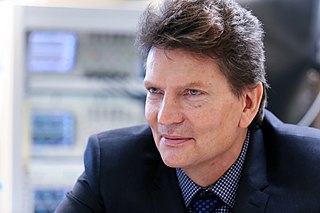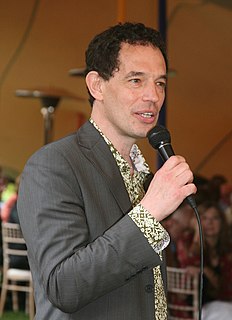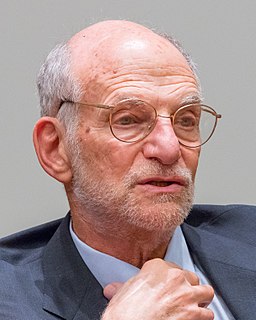A Quote by Edward Boyden
I would argue that if you understand how the cells of the brain are organized into circuits, almost computational circuits if you will, and we see how information flows through those circuits and how it's transformed, we might have a much firmer grasp on why our brains make decisions the way that they do. If we get a handle on that, maybe we can overcome some of our limitations and at the very least we'll understand why we do what we do.
Related Quotes
Neuroscientists talk a lot about brain circuits. In fact, the word 'circuit' is probably misleading. We do not know where most circuits begin and end. And unlike an electrical circuit, brain connections are heavily reciprocal and recursive, so that a direction of information flow can be inferred but sometimes not proven.
I do believe that when we're in the process of dying, that all these emergency circuits in the brain take over. I base what I'm saying not on any empirical evidence. I think it's very possible that when you're dying, these circuits open up, which would explain this whole white-light phenomena - when people clinically die and they see their relatives and stuff and say, "Hello, it's great to see you."
Whatever it is, people have issues and that affects you deeply. So you have to get to the bottom of it and not let that affect your life decisions and really understand why you're making the decisions you make so that way you can understand how to not do that, so I always encourage people to ask why and then to really understand you, because that's the only way to be your most successful and your most happy.
Quantum physics forms the foundation of chemistry, explaining how molecules are held together. It describes how real solids and materials behave and how electricity is conducted through them... It enabled the development of transistors, integrated circuits, lasers, LEDs, digital cameras and all the modern gadgetry that surrounds us.
Over the course of the years, I've learned [that] fashion is a fascinating business about selling magic. It is done on the backs of our optimism and our insecurity. It is as much psychology as commerce. But I've also learned that every day we make split second decisions about people based on their attire and those decisions can have powerful implications - see the story of Trayvon Martin and his hoodie. It's important for us to understand how fashion works and how we connect to it.
I'm trying to understand cosmology, why the Big Bang had the properties it did. And it's interesting to think that connects directly to our kitchens and how we can make eggs, how we can remember one direction of time, why causes precede effects, why we are born young and grow older. It's all because of entropy increasing.
Tachyon OPC+ is a natural extension of our market-winning Tachyon platform, giving customers a clear path to minimizing the OPC error budget and producing better-performing circuits sooner and faster. Until now, customers have had to deal with a delicate balance of compromises when producing advanced OPC-enabled circuits, including trading accuracy for speed. Tachyon OPC+ breaks free from these compromises.

































